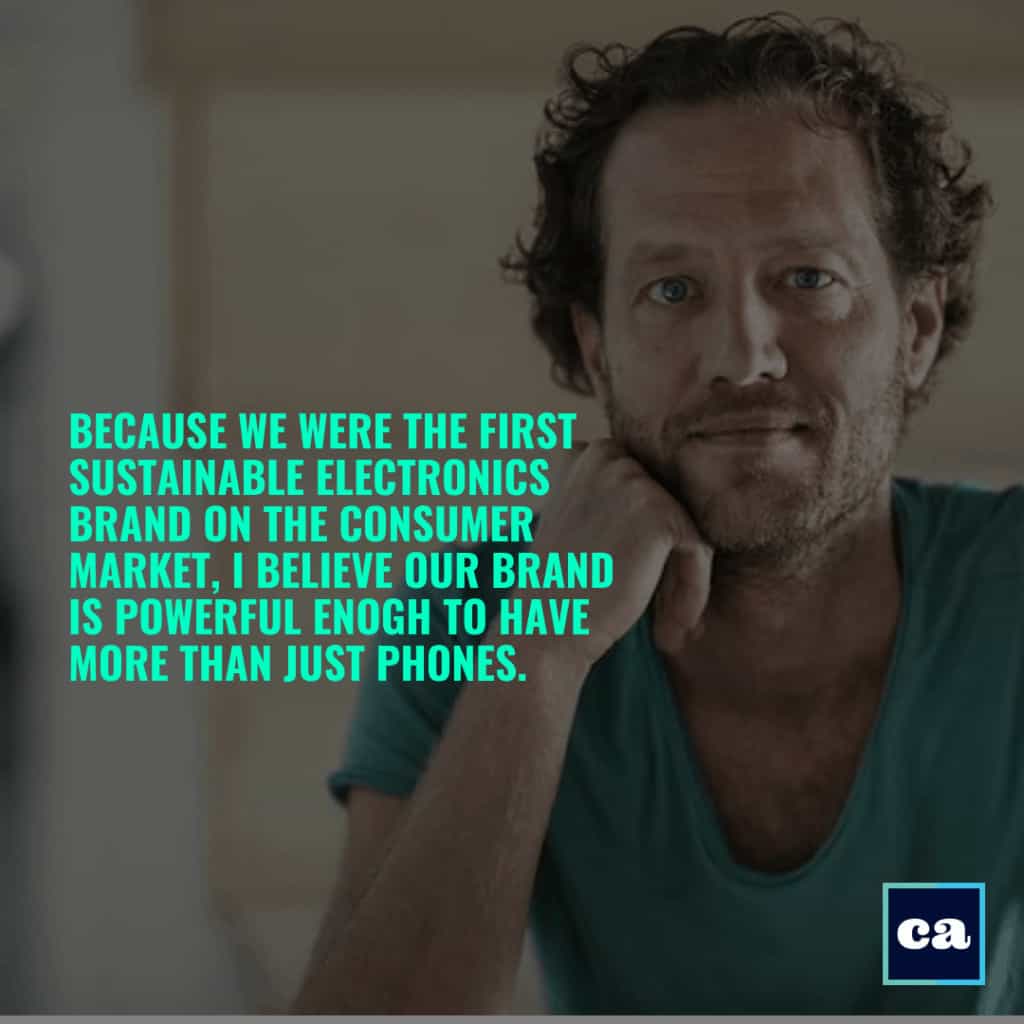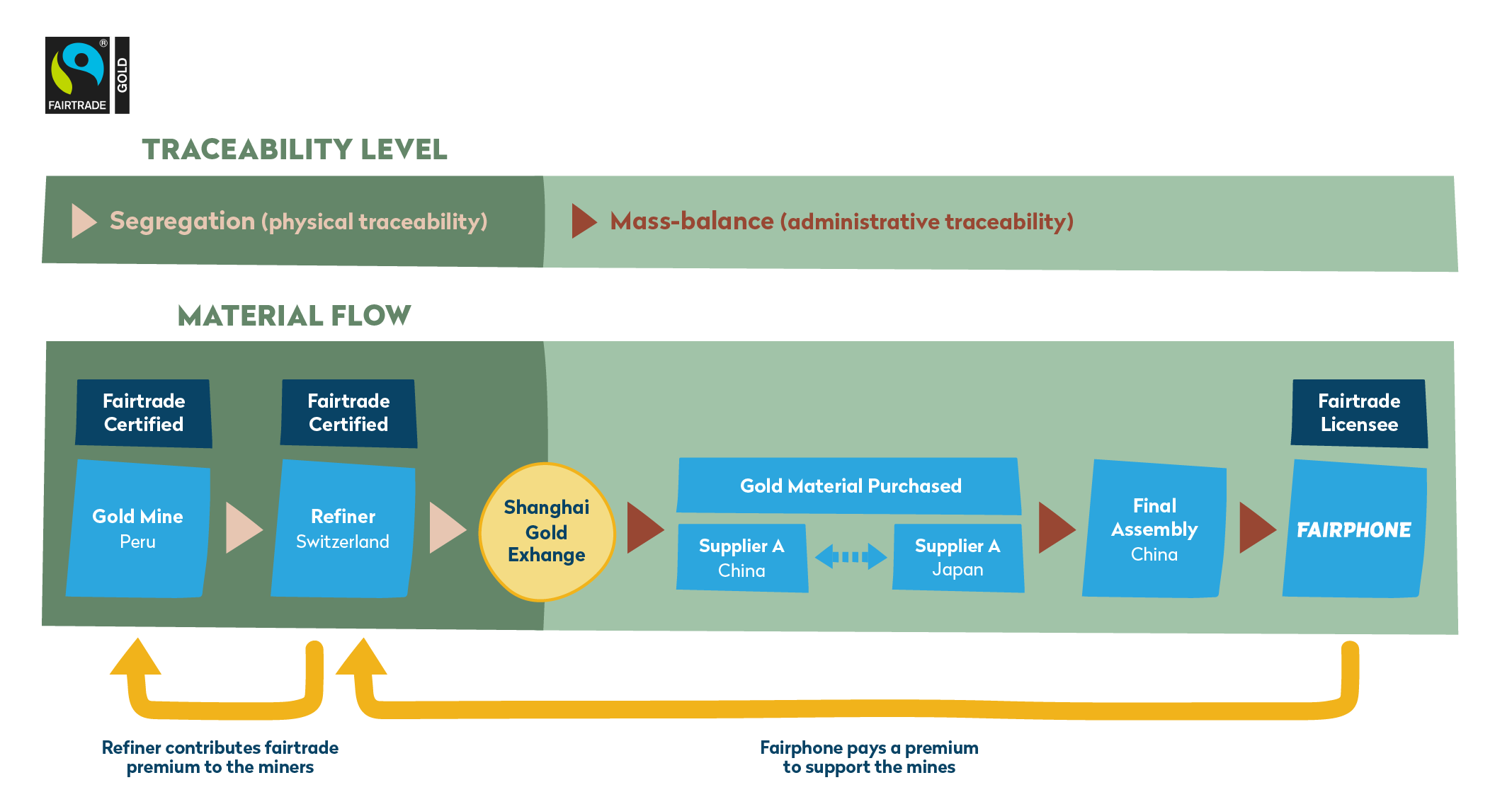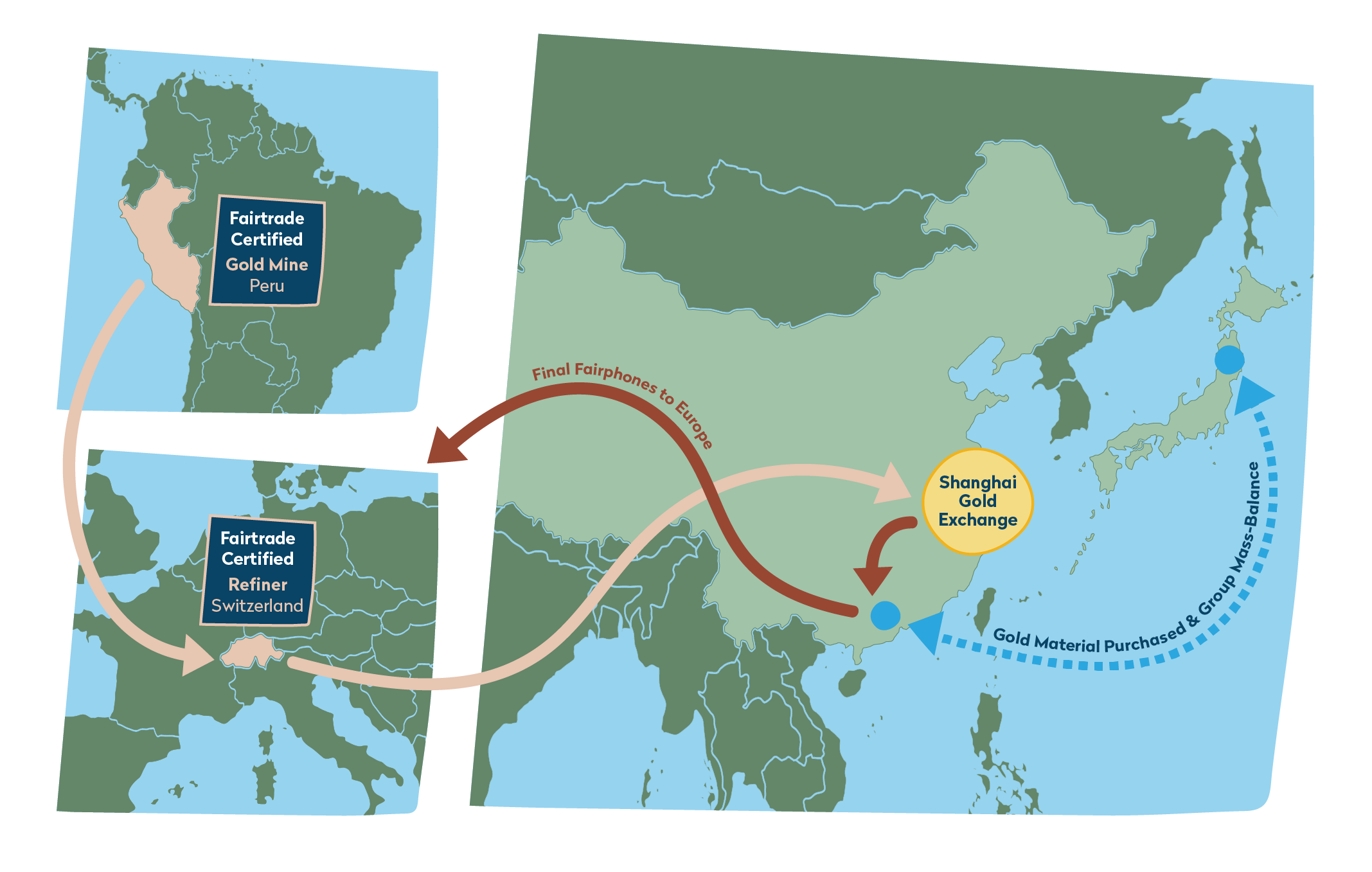Fairphone is a social enterprise that is committed to developing a fairer smartphone. The company was founded with the aim of creating a more sustainable and ethical supply chain for the electronics industry.
The company works with partners across the supply chain to improve working conditions and environmental sustainability.
The company also engages directly with consumers to raise awareness of the issues involved in making a smartphone.
In a world where technology is rapidly advancing, there is a growing concern for the impact that the production and disposal of electronic devices have on the environment and society.
Fairphone has taken up the challenge of creating a more sustainable and ethical smartphone.
The History of Fairphone
Fairphone was founded in 2013 by Bas van Abel, a Dutch social entrepreneur. The idea for Fairphone came to Bas Van Abel while he was working on a project in the Democratic Republic of Congo.
He was struck by the prevalence of conflict minerals, which are used in the production of electronics, and the devastating impact they had on local communities.
This experience led him to explore ways to create a more ethical and sustainable smartphone.
The first Fairphone was launched in 2013, and it was designed to be a smartphone that was not only environmentally friendly but also socially responsible.
The company aimed to create a phone that would last longer, be easier to repair, and use fair trade and conflict-free materials.
Mission of Fairphone
The mission of Fairphone is to create a fairer electronics industry. They believe that the production and disposal of electronic devices should be done in a way that is environmentally sustainable and socially responsible.
Fairphone’s goal is to challenge the status quo of the electronics industry and show that it is possible to create a better, more ethical smartphone.
To achieve this mission, Fairphone has taken a holistic approach to sustainability, looking at every aspect of the production and use of their phones.
They work with suppliers to ensure that their materials are responsibly sourced, and they have created a phone that is designed to be easy to repair and upgrade, reducing the need for consumers to replace their devices.
Vision of Fairphone
The vision of Fairphone is to create a world where electronics are produced and consumed in a way that is fair for people and the planet.
They believe that this can only be achieved by working with the entire electronics industry, from suppliers to consumers, to create a more sustainable and ethical system.
Fairphone’s ultimate goal is to change the way that electronic devices are produced and consumed. They hope to inspire other companies to adopt more sustainable and ethical practices, and to create a movement that will lead to a more responsible electronics industry.
Fairphone’s First Smartphone
The companies first product was the Fairphone 1, which was released in 2013. The Fairphone 1 was designed to be a more ethical and sustainable alternative to other smartphones on the market.
The phone was made with conflict-free minerals, recycled plastic, and fair labor standards. The Fairphone 1 was followed by the Fairphone 2, which was released in 2015.
The Fairphone 2 was designed to be even more sustainable and ethical than the first phone. It was made with recycled materials, conflict-free minerals, and fair labor standards.
Fairphone is committed to continuing to improve the sustainability and ethics of its products. The company released the Fairphone 3 in 2017 and recently released the Fairphone 4.
The Fairphone 4
This phone was created with the intention of being more sustainable and ethical than other phones on the market. The company uses recycled materials in the phone’s construction and aims to source minerals from conflict-free areas.
Furthermore, the phone is designed to be easily repaired, with spare parts readily available.

The phone runs on the Android operating system and is equipped with a 5.65-inch display, octa-core processor, and 64GB of storage.
It also features a dual camera setup and fingerprint sensor. The device was released in Europe and is currently only available unlocked.
Overall, the Fairphone 4 is a great option for those looking for a more sustainable and ethical phone. The device is well-built and designed to last, with easy repairability should something go wrong.
If you’re looking for an alternative to the major phone manufacturers, Fairphone is definitely worth considering.
The company is also working on a range of other initiatives to improve the sustainability and ethics of the smartphone industry.
These include a project to develop a modular smartphone that can be easily repaired and upgraded, and a project to create a fair trade label for smartphones.
Causeartist x Fairphone Podcast
In Episode 2 of the Disruptors for Good podcast I spoke with Bas Van Abel, founder of Fairphone, on creating the world’s first sustainable phone.
Listen on Spotify.
Listen on Apple Podcasts.
Listen to more Causeartist podcasts here.
Topics we talk about:
- The complexity of how cell phones are created
- Fair trade materials and supply chains
- Coming to the Untied States
- The affects on mental health for entrepreneurs
- Potential new products
- Crowdfunding and Equity Crowdfunding
The company believes in sourcing conflict-free materials that support local economies, not armed militias. They work closely with manufacturers that want to invest in employee well being and ethical worker practices.
The company is also addressing the full lifespan of mobile phones, including use, reuse and safe recycling programs that make it easy to recycle your phone, so the parts can be re-purposed and not end up in landfills and the ocean.
The impact of Fairphone can be seen in the company’s growing customer base and the increasing awareness of the issues surrounding the smartphone industry.
Fairphone has been recognized by a number of organizations for its work in promoting sustainability and ethics. In 2016, it was also named one of the World’s Most Innovative Companies by Fast Company.
Fairtrade Gold
The company has paved the way to source more Fairtrade gold! Together with Fairtrade, they have partnered with Hirose Electric Co., Ltd. in Japan in order to integrate more Fairtrade gold into the Fairphone supply chain.
The relationship with Hirose and Fairtrade continues the support of ASM gold projects and miners. This is an incredible stepping stone for the larger vision of a Fairtrade and Fairphone partnership to scale responsible gold in the electronics sector.
Disclaimer:

Note: Fairphone calculates the amount of gold used and pays an amount equivalent to the Fairtrade Premium to the refiner who sources this amount of gold from the Fairtrade mines.
Similar to the Fairphone 3 model, the Fairtrade certified gold remains separate until the refiner level. Once at the Shanghai Gold Exchange (SGE) it is then mixed with non-Fairtrade gold.
Our component supplier in Japan (Hirose) then purchases enough gold from SGE to cover the amount of Fairtrade gold claimed by Fairphone.
With this model, Fairphone contributes to the equivalent premium of the Fairtrade gold claimed for its supply chain and production volume.

Since Fairtrade gold is mass-balanced with non-Fairtrade gold in the SGE, that means that the certified gold is not guaranteed to be in the product.
However, our Japan pilot model builds on the mass-balance model and tracks the gold used along the value chain between factories owned by the same supplier.
We are continuing to work with Fairtrade to explore how we can bring more of our supply chain into the Fairtrade system.
While there are over 40 different materials in a smartphone, gold is one of Fairphone’s 14 focus materials and has been a target material for us since day one. It is a material often mined artisanally.
Since 2016, the company has been able to integrate Fairtrade gold into the supply chain, yet, this accounted for just a small percentage of all the gold used in devices, as gold is used in very small quantities, spread across many different components of the phone.
Though a good start, the company always aim to do better and find ways to encourage the industry to adopt similar practices.
This means building a supply chain model that could easily be replicated and scaled in the electronics sector. So in great Fairphone fashion, they put their heads together with partners – Fairtrade and other suppliers – to come up with the best solution to increase fairly sourced gold in our supply chain.
They are still exploring how this can be further replicated in the average electronics supply chain.
Fairphone for Business
Choosing a sustainable smartphone is a great way for startups and companies to step towards helping the planet and people – but it also helps your business.
- Save time and money
Thanks to our modular design, our smartphones last much longer than a non-modular smartphone. Additionally, the repair costs are much less than standard smartphones. - Meet your CSR goal
Become a champion of sustainability, by making a positive impact on issues directly linked to 9 of the UN Sustainable Development Goals. - Be supported beyond industry standards
The proposition we offer to companies beyond our fair specs include: a 5 year warranty with spare parts available on the long term, electronic waste compensation & recycling (buy-back), long term software support and regular security and maintenance updates.
Interview Transcript
00:00
Grant: Hey, what’s going on everybody? This is Grant from Causeartist. In this episode of Disruptors for Good, I chat with Bas van Abel, founder of Fairphone. If you don’t know what Fairphone is, it’s basically an ethical cell phone.
Their mission is to create an ethical and sustainable electronic device that we can all use. Fairtrade and sustainability can mean different things to different people, but Fairphone aims to integrate these concepts into electronics.
We often think about these issues in the food and fashion industries, but not so much with electronics. Fairphone and Bas have tackled this challenge head-on, and they’ve achieved remarkable things.
03:52
Bas: Thanks. I’m looking forward to showing you what’s under the hood of starting something as ambitious as Fairphone. It takes a lot of naivety to start a phone company.
04:09
Grant: Let’s start with the basics. For those who don’t know, what is Fairphone? How do you explain it to them?
04:26
Bas: It’s multi-dimensional. It’s a phone, but we try to make it as fair as possible. There’s no clear definition of ethical technology or sustainability within the tech sphere. We’re like the fair trade movement in agriculture. We go all the way back to the mines where the minerals come from.
There are over 40 minerals in a phone, mined from all around the world, and there’s a lot wrong there. We work on improving the conditions in these mines and the factories where phones are produced. Our goal is to design phones that last longer, reducing the need for constant production and minimizing waste.
07:09
Grant: What did you see in the existing supply chains that bothered you and made you want to start Fairphone?
07:26
Bas: I’ve been working in technology for a while and have always critically examined how it affects our lives. The complexity of technology makes it hard to understand where it comes from.
My fascination was in connecting something as complex as a smartphone back to its origins. We’ve lost that connection in our economic systems.
Fairphone started with the idea of making people part of what happens behind the scenes, from the mines to the final product. By creating this relationship, we hope to make people care about the improvements needed in the supply chain.
10:44
Grant: Going to the Congo to build relationships must have been challenging, given the corruption and civil war. What was that like?
11:22
Bas: When you start a company, you’re dictated by the same economic system you’re trying to change. We approached it strategically and naively. We went to the Congo to find a fair mine, asking around for fair mining practices.
On day one, I had to bribe the Minister of Communication to film in the mines, which was a reality check. But instead of hiding these issues, we shared them openly. Transparency is key. By telling the story, we encouraged other companies to join us in addressing these problems rather than avoiding them.
15:52
Grant: The food industry was the first to realize there was a problem and started the journey of changing the supply chain. The fashion industry is now following suit. Transparency is becoming crucial. As consumers, our dollars can change things more than our votes. Shifting our consumer mindset even slightly can have a massive impact.
20:02
Bas: Absolutely. The supply chain functions because there’s a person who buys the final product. Consumers have power, but transparency only goes so far. Electronics have complex supply chains that are hard to map out entirely.
By the time you map it, it’s already changed. We focus on areas where we can make a difference rather than trying to solve every problem.
22:27
Grant: The current lifecycle of a cell phone involves materials being mined, parts assembled, and then the product is sold to consumers. Many phones end up as waste. What can be done to improve this?
23:05
Bas: Most of the environmental impact of a phone happens during production. About 70% of the CO2 footprint is from production.
Using a phone takes relatively little energy. If you keep your phone twice as long, you only need to produce half as many phones, which significantly reduces the environmental impact.
Our focus is on increasing the lifespan of phones. We design them to be easily repairable and encourage users to keep them longer.
26:24
Grant: What’s the struggle of getting Fairphone to America?
32:43
Bas: It’s not a struggle but a decision not to enter the U.S. market yet. We want to grow the company in a manageable way and focus on operational excellence. The U.S. market is tough, and we want to ensure everything is in order before expanding. Our current market in Europe still has significant growth potential.
34:24
Grant: Would there ever be a Fair OS, given that the phone currently runs on Android?
34:50
Bas: We aim for as much openness as possible. Fairphone runs on Android with Google services, but users can switch to a Google-free version. We also collaborate with Ubuntu Touch and Jolla Sailfish, offering more open-source options.
36:04
Grant: You recently did an equity crowdfunding round. Can you talk about that experience?
36:14
Bas: Fairphone has a history of crowdfunding. We started the company with presales, raising 7.5 million euros before we even had a phone.
The recent equity crowdfunding allowed people to become shareholders, raising 2.5 million euros. It was part of a larger equity and debt raise. Crowdfunding fits well with Fairphone’s inclusive approach. It forces transparency and shows strong community support.
40:14
Grant: What about other electronics, like tablets or laptops? Any plans to expand the product line?
41:00
Bas: We want to get the basics right first. Once we have operational excellence, we can consider expanding our product line. Diversifying would help with business stability and impact. We currently have no concrete plans but recognize the potential.
42:05
Grant: Is it possible for Fairphone to have its own facilities to streamline production and ensure reliability?
42:08
Bas: Vertical integration isn’t feasible for us. We work with selected factories and integrate supply chains for specific components, like Fairtrade gold. We focus on areas where we can make a difference rather than trying to control the entire supply chain.
50:27
Grant: What has the journey been like for you as an entrepreneur and father? How do you balance your mission and personal life?
51:20
Bas: It’s been an amazing but manic ride. The biggest challenge is the compromises you have to make. The pressure of running a rapidly growing company can be overwhelming.
I collapsed after two and a half years due to exhaustion. After recovering, I realized that scaling a company requires different skills. I recently handed over the CEO position to Eva, who has the expertise to take Fairphone to the next level. Now I can maintain some distance and appreciate the journey and the impact we’re making.
Grant:
Thank you for sharing your journey, Bas. It’s inspiring to hear about the work Fairphone is doing and the challenges you’ve overcome. Best of luck with the future of Fairphone.







